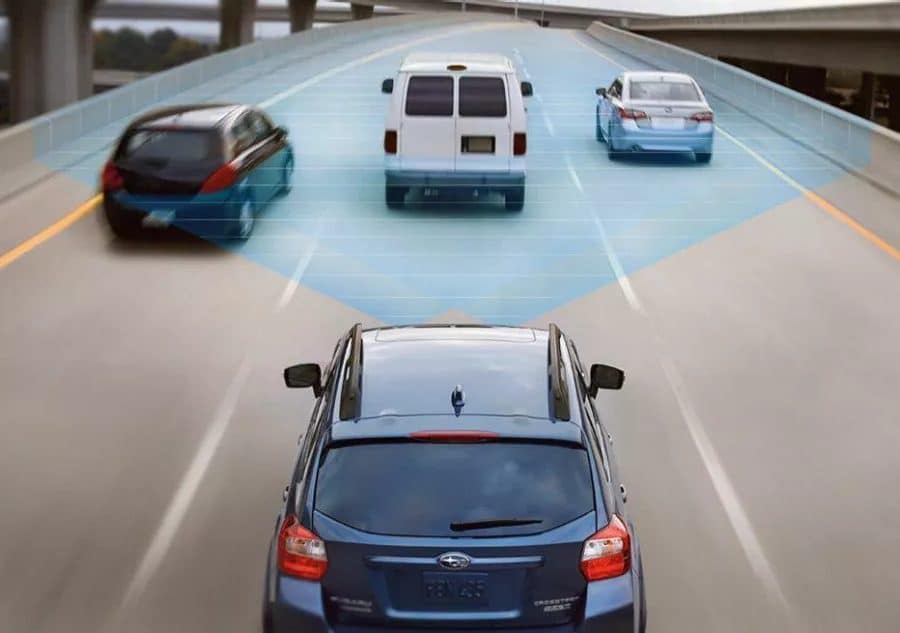Automakers can and should be held liable for ignoring modern safety tech
Automakers have a duty to keep up with industry safety trends. But sometimes they choose not to do so, and instead elect to go with cheap, but much more likely to defective, equipment—or forego safety advances altogether. Companies that choose to skimp or cut safety features create needless risks. Automatic braking is a great example. Automakers know that lives will be saved if this technology is installed in vehicles. That’s why it became industry standard over the past decade. Yet some companies have dragged their feet. And the result is that people have been paralyzed and killed because automakers have chosen not to install readily available safety tech. This raises the question: what legal rights and remedies are available when someone is hurt or killed because an automaker failed to keep up with modern safety advances?
This exact question was answered by the Arizona Supreme Court’s March 1, 2022 opinion in Varela v. Fiat Chrysler America. In the landmark decision, the Court rejected Fiat Chrysler America’s (FCA) argument that it was immune to liability for failing to install automatic braking technology. This decision is a major early victory for consumers on a bigger picture issue—the ability to sue automakers for not using autonomous safety features—that will be the subject of litigation all over the country in the years to come.
The fatal crash and the lawsuit.
The case was brought by Melissa Varela, who was stopped in her car with her 4-year-old daughter, Vivian, seated next to her on August 7, 2015. Suddenly, a 2014 Jeep Grand Cherokee slammed into the back of them. Melissa suffered severe physical injuries. Vivian died.
The Jeep that killed Vivian lacked any automated collision-avoidance technology. FCA chose not to install forward collision warning technology and crash imminent braking that could have potentially detected the Varela vehicle and applied the brakes to either prevent or mitigate the harm. And it’s not as if Jeep didn’t know about this technology or lacked the ability to equip this technology in its vehicles. As the court observed, FCA actually provided this technology on its “two most expensive models,” while leaving it off of its lower three trim levels. Unfortunately for Vivian and her mother, the driver of the Jeep did not have the high-end vehicle—which meant that the Jeep did not sense the crash and stop.
Melissa brought suit against FCA for failing to equip the Jeep with the readily available automatic braking technology that could have saved her daughter’s life. The trial court dismissed the lawsuit, agreeing with FCA that the claim was preempted by federal regulations. The appeals then ensued.
The legal fight: federal preemption.
Preemption is a legal doctrine which basically prevents state court claims from moving forward where federal laws controls. There are a different types of preemption. Sometimes it’s express; i.e., a federal statute specifically says that certain state law claims cannot be brought. Sometimes the federal law occupies the entire field of law, leaving no room whatsoever for state law. Other times, preemption may be implied—meaning that no federal statute specifically says that the claim can’t be brought, but the nature of the federal laws and state laws cannot be reconciled such that the state law must give way.
Varela involves a subtype of implied preemption—known as “implied obstacle preemption.” Basically, implied obstacle preemption refers to a situation where the application of state law would frustrate the objectives of a federal law. FCA argued that the National Highway Traffic Safety Administration (NHTSA)—the federal agency tasked with overseeing automotive safety—did not require automatic braking and instead wanted to allow manufacturers to pick and choose which features to add.
The trial agreed with FCA and dismissed the case as preempted. The Arizona Court of Appeals disagreed, and reversed the trial court. FCA then took the case to the Arizona Supreme Court. The state’s high court then affirmed the Court of Appeals, explaining:
“We conclude that the Agency has neither conveyed an authoritative statement establishing manufacturer choice as a significant federal policy objective nor made explicit a view that AEB should not be regulated. The record also does not reflect an intent to restrict regulation of automated vehicles and automated driving systems beyond traditional federal regulatory authority nor is there a definitive statement that states may not regulate. To the contrary, the Agency has acknowledged that states have regulated and are continuing to regulate in the field of development and deployment of automated driving systems and has encouraged states to undertake a review of how liability may be affected in an automated driving system environment. What is likewise evident throughout the entirety of the regulatory record is the Agency’s emphatic commitment to partnering with states to facilitate the ongoing development and safe deployment of automated vehicle and automated driving system technology, of which AEB is a component.”
In short: the Arizona Supreme Court conclusively ruled that the lack of a federal requirement does not immunize automakers from failing to keep abreast of automatic braking technology. And that’s a huge win for consumers.
Why the decision is a huge win for consumers—but not the last word.
Automotive safety will continue to evolve alongside technological advances. Automakers—huge, international corporations—have a duty to keep up with those changes to keep people safe. After all, we don’t make cars without seatbelts or airbags anymore. There’s no excuse for skimping on safety technology that’s widely available and economically feasible. Profits should not be elevated over safety. Critical safety systems should not be “premium” features.
The Varela decision is a major victory because it puts a foothold in an area of law that will continue to develop along with technological innovations. The industry must be held accountable. Civil lawsuits are the best and most effective mechanism for doing so. As an example, just recall how NHTSA never really put the hammer down on Takata until civil lawsuits brought the issue to Congress’s attention.
But Varela will not be the last word on the matter. For one thing, it’s possible that FCA will take the issue to the US Supreme Court. This is so because preemption is a federal issue—and the US Supreme Court has the ultimate say on federal law. At the same time, other state courts may come to different conclusions, as the Arizona Supreme Court’s opinion is only binding within that state. And the Arizona Supreme Court based its ruling on the specific technology at issue, looking to NHTSA’s actions with regard to automatic braking. Other safety technology could potentially have a different regulatory posture, creating an argument for automakers to try to distinguish the Varela opinion.
Conclusion
The bottom line is that consumers need access to the justice system when they or a loved one is hurt as a result of an automaker’s decision to cheap out on safety. Only time will tell whether the reasoning in Varela ultimately sweeps the nation and extends out to other claims. One thing we do know for certain: it is a very important early win in this emerging litigation area.
In the meantime, if you or your client has been hurt or killed in an automobile crash, it’s critical that you think outside of the box. Products liability lawsuits aren’t just about something failing to activate, misfiring, blowing up, or coming undone. Instead, they can also be brought where an automaker fails to include a safety feature that is available and feasible. The Varela case is a great example. FCA chose to put its automatic braking technology on “premium” trim levels but not on the base models. That financially motivated decision is potentially to blame for the death of a 4-year-old girl. A civil jury should get to have the last say on the reasonableness of FCA’s decision.
Please give us a call at 888-808-5977 if you, a loved one, or a client has suffered harm in an automobile crash that you think could have been prevented with the use of modern safety technology. We will review the case with you, free of charge, and give you our opinion as to the strength of the case. If we decide to move forward, we will pursue the case on a contingency fee basis—meaning no attorney’s fees or costs will be owed unless and until we obtain money from the defendant.


